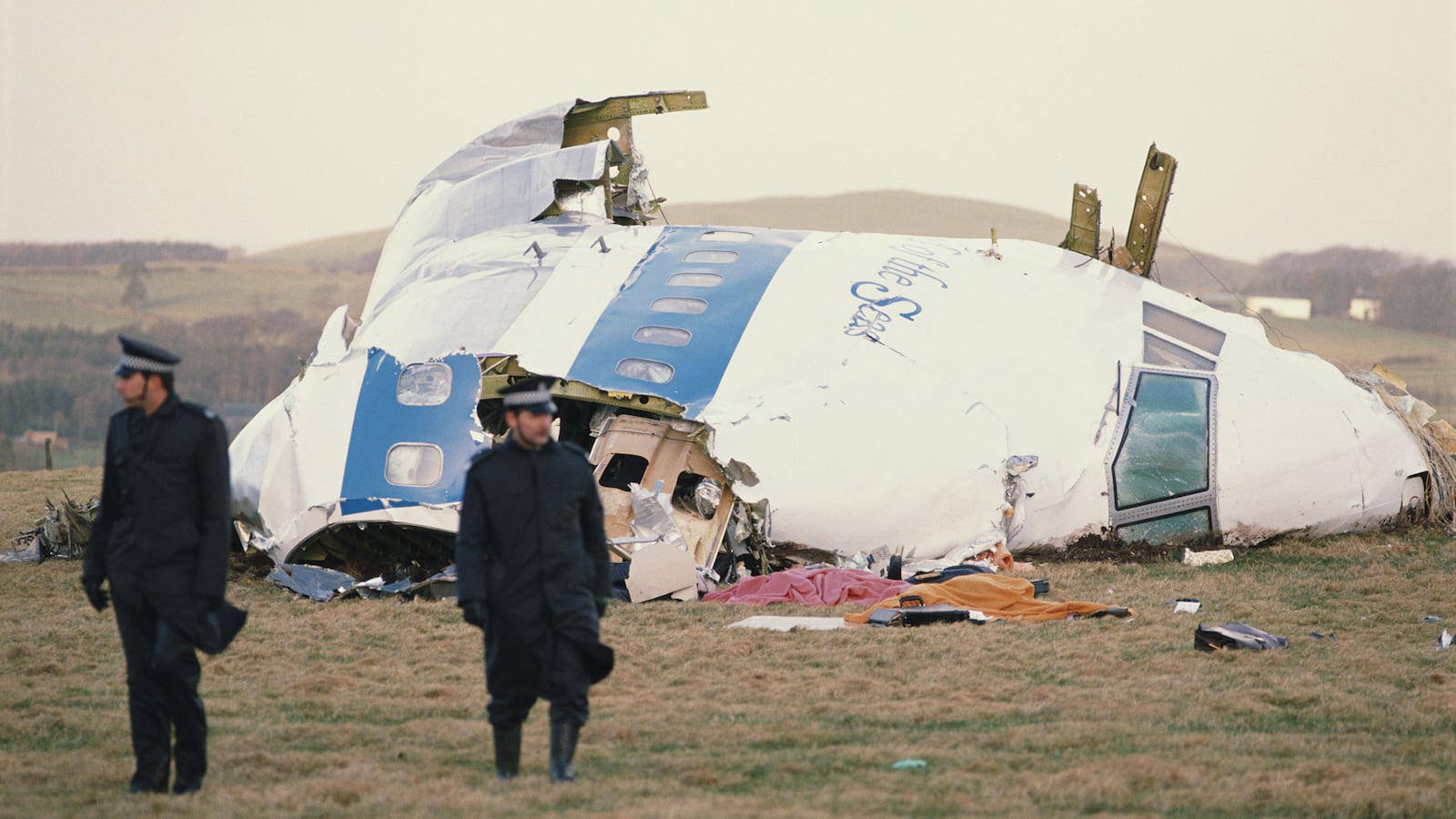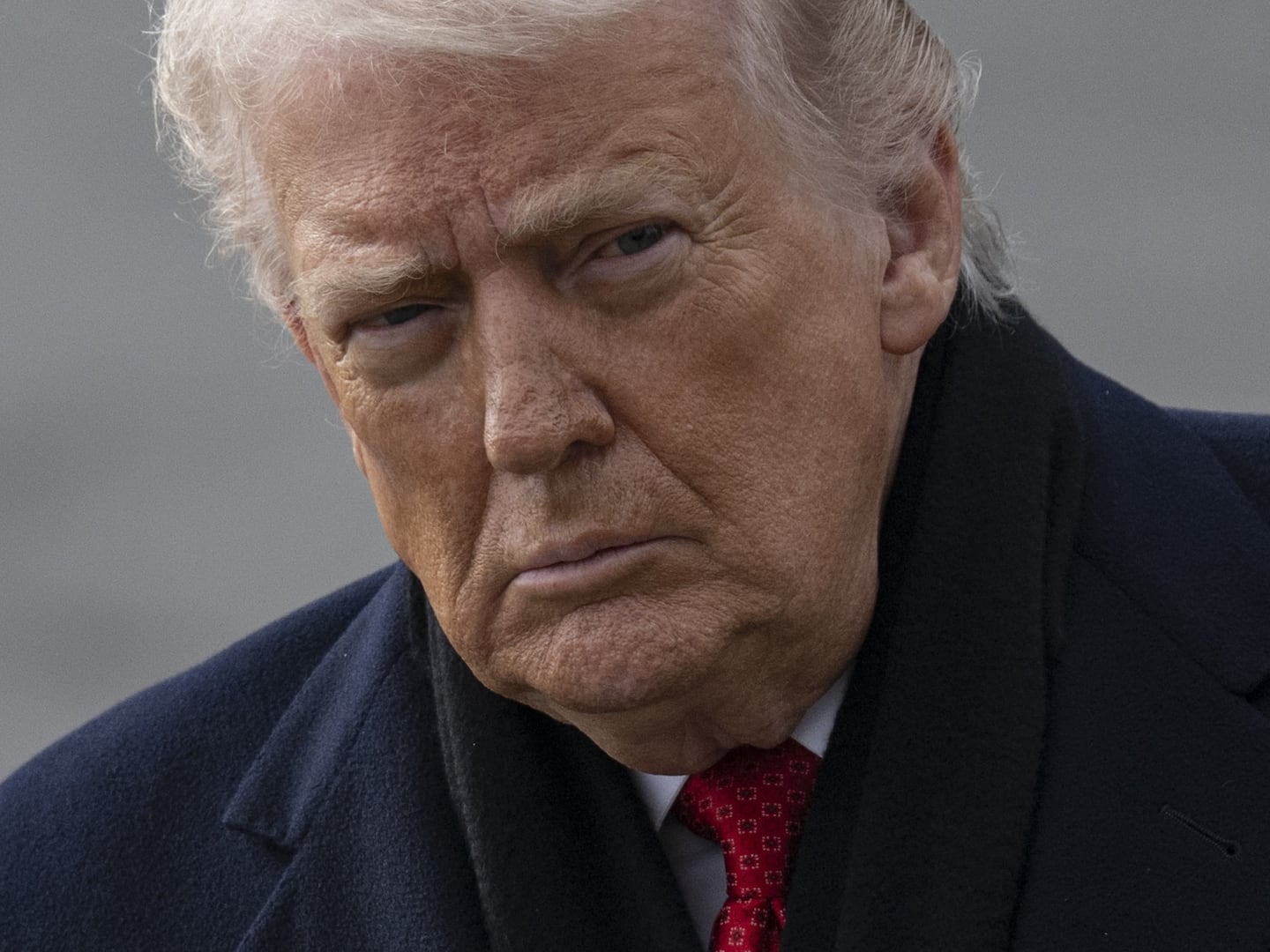December 21 is the 30th anniversary of the terrorist bombing of Pan Am Flight 103 over Lockerbie, Scotland. A week before the anniversary, the FBI launched an online media campaign, both through tweets and videos, announcing that it has not forgotten the tragedy that claimed 270 victims, 189 of them Americans. Its video claims that the bureau “and its Scottish partners are still actively seeking justice for the victims and their families.” But that seems to be nothing more than lip service as no movement, despite ample opportunities, has been seen in the case for many years.
It was clear within days of the Lockerbie air disaster that it was terrorism, notably against the U.S., whose flag was boldly portrayed on the airplane’s tail. The investigation into the bombing was the largest international criminal effort at the time. Not three years later the joint effort by the U.S.-U.K. had identified the culprit—Libya.
In November 1991, the two governments simultaneously indicted two Libyan intelligence officers—Abdel Baset al-Megrahi and Lamin Khalifah Fhimah—for their role in the bombing. Few, however, believed the bombing to simply be the rogue work of two intelligence officers. That was simply not how Libya, which had been under the authority of Colonel Muammar Gaddafi since 1969, functioned.
In light of our non-existent relationship with Libya, there the case likely would have stalled. But the collapse of the Soviet Union one month later provided an unprecedented opportunity for the U.S. and U.K. to take advantage of the power gap and push three resolutions imposing various economic sanctions through the United Nations’ Security Council. Libya was required to surrender its two nationals and pay “appropriate compensation.”
It took eight years until an agreement was reached. In 1999, the two men were sent to the Netherlands under three conditions: the men could not be interviewed, no one else in Libya would be sought for the bombing, and the trial would have to be before three Scottish judges without a jury.
Following a 36-week trial the court announced unanimous verdicts on January 31, 2001: Fhimah was acquitted, and al-Megrahi was guilty. A life sentence was imposed upon al-Megrahi, with parole eligibility in 27 years (the equivalent of 10 months per victim). The day of the verdict, then-FBI Director and now Special Counsel Robert Mueller announced, “The case is not closed. The investigation will continue until any individual who played a role in this tragedy is brought to justice.”
Yet Gaddafi’s government drew closer to the United States in the aftermath of 9/11, especially since al Qaeda was a common enemy. U.N. sanctions were lifted in 2003. U.S. sanctions were primarily lifted in 2004. Libya was removed from the State Department’s list of state sponsors of terrorism in 2008.
Then in 2009, Scotland allowed the convicted murderer al-Megrahi “compassionate” release due to prostate cancer. Gaddafi received him with a hero’s welcome. Although he was said to have only six months to live, he survived until 2012. His family, along with a few British relatives of those who died on Pan Am 103, are still proclaiming his innocence and trying to overturn his conviction. The case appeared hopeless.
But then the Libyan people revolted in early 2011, and the U.S. and NATO provided assistance to the rebels. Gaddafi was killed by his own people on October 20, 2011. Here was an incredible opportunity for the U.S. to gain custody of Fhimah, whose D.C. indictment still remains open, and the Libyan leadership who played a role in the bombing. At a minimum, here was our chance in the chaos, as we did in the aftermath of the Soviet Union’s collapse, for the U.S. to at least purchase relevant documentation regarding the bombing. The change in Libya offered so many possibilities and slowly some positive news emerged.
Gaddafi’s son, Saif, was captured by rebels and was to be tried in Libya. The same was true for Abdullah Senussi, Gaddafi’s brother-in-law and former intelligence chief at the time Pan Am 103 was bombed. Mousa Kousa, Libya’s intelligence chief from 1994 to 2009 (and an intelligence officer in 1988), had fled to the U.K. earlier in March. Scottish authorities reportedly interviewed him about Pan Am 103. With these events, perhaps we would finally learn more information. Again, disappointment overshadowed the day.
Saif was sentenced to death in absentia by a court in Tripoli in 2015, but released from rebel prison in 2017 and given full amnesty. He is reportedly running for president in Libya’s next election. Senussi was also sentenced to death in 2015, and reports are that his appeal is still pending. The British determined it had no reason to hold Kousa, with no indication if U.S. authorities ever interviewed him, and he was allowed to safely settle in Qatar.
The only new information publicly learned in the past few years came not from the government but from a 2015 PBS Frontline series “My Brother’s Bomber,” which identified Senussi and an alleged Libyan bomb expert Abu Agela, who was sentenced to 10 years in prison in the aftermath of the 2011 uprising, as individuals connected to the bombing.
The Crown Office announced that together with the U.S. Department of Justice, it was “seeking the assistance of the Libyan judicial authorities for Scottish police officers and the FBI to interview the two named suspects in Tripoli.” Whether this occurred or what was learned is unknown but the FBI said that it was “working aggressively ” to bring those responsible for the Lockerbie attack to justice. But I have spoken to numerous U.S. officials who spent time in Libya during 2011-2014 and always asked them whether Pan Am 103 was ever an action item or even discussed. It was not.
Like the FBI, I have not forgotten about Pan Am 103. I spent more than 20 years representing families of the victims, and was part of the legal team that filed the first civil lawsuit against Libya in 1993. And it’s personal: Two of my schoolmates at the University of Rochester (NY) were among those killed. While the civil lawsuit achieved an unprecedented settlement of $2.7 billion dollars, I have always regretted we never uncovered any new facts. But that remains the government’s role, not ours. Thirty years after the bombing I must respectfully question what, if anything, the U.S. and U.K. governments are doing to actually seek justice for the victims and their families. As the British saying goes, the proof is in the pudding.
Mark S. Zaid is a national security attorney in Washington, D.C. He represents the Daily Beast in FOIA matters.








